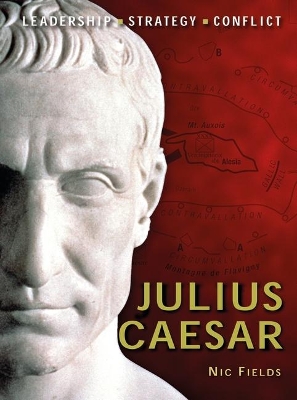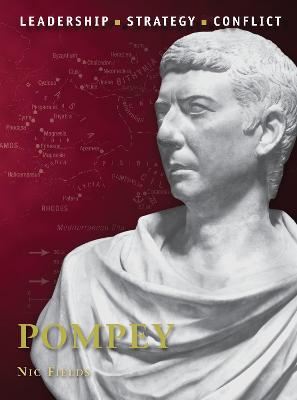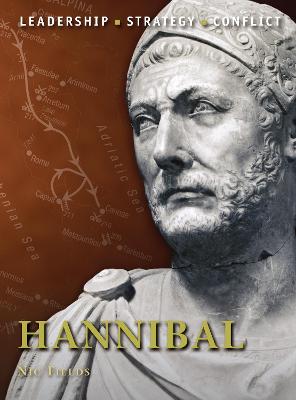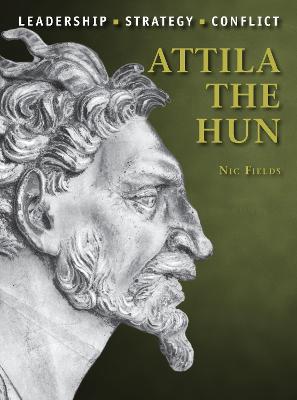Command
1 primary work • 4 total works
Book 4
One of the greatest military commanders in history, Julius Caesar's most famous victory - the conquest of Gaul - was to him little more than a stepping stone to power. An audacious and decisive general, his victories over the Gauls allowed him to challenge for the political leadership of Rome. Leading a single legion across the Rubicon in 49 BC, Caesar launched a civil war which would end the Roman Republic and usher in the Roman Empire, with Caesar at its helm. This examination of the great general's life covers his great victories and few defeats, looking at the factors which lay behind his military genius.
Pompey, or Pompey the Great, was one of the best military leaders of the late Roman Republic. His campaigns against the Marians, his battles in Hispania and his defeat of the Mediterranean pirates launched him to political stardom where he became an ally of Julius Caesar and a member of the First Triumvirate. However, an alliance between two such ambitious figures could not last, and the two became bitter rivals as the Republic descended into civil war. This book tells the complete story of Pompey as a military commander, pulling him out from the shadows of Julius Caesar's writings and examining him and his campaigns on their own merits.
By the end of the First Punic War Carthage had been humiliatingly chased from the high seas, its once-powerful fleet reduced to a handful of triremes. However in 219 BC Hannibal, the eldest son of the charismatic general Hamilcar Barca, began the Second Punic War and was so successful that he threatened to destroy Roman power completely. Hannibal was a cool, thoughtful general, and can arguably be described as the greatest general of antiquity. His genius rested on a mixture of bluff, double bluff, and an ability to use all troop types to their best advantage. The battle of Cannae remains a chef-d'oeuvre to which generations of subsequent generals have aspired.
One of the most powerful men in late antiquity, Attila’s peerless Hunnic empire stretched from the Ural mountains to the Rhine river. In a series of epic campaigns dating from the AD 430s until his death in AD 453, he ravaged first the Eastern and later the Western Roman Empire, invading Italy in AD 452 and threatening Rome itself. Lavishly illustrated, this new analysis of his military achievements examines how Attila was able to sweep across Europe, the tactics and innovations he employed and the major battles he faced, including one of his few major setbacks, the defeat at the battle of the Catalaunian Fields in AD 451.



